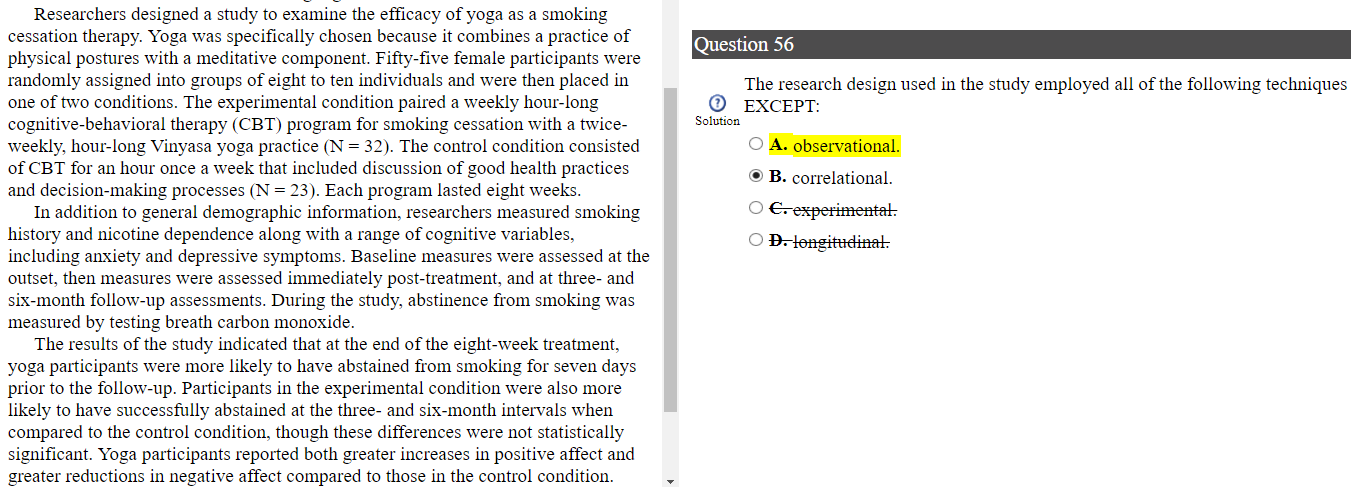6
663697
This is more of a general question regarding research methods; can a study be experimental and correlational at the same time? The passage referred to a study where smokers were randomly assigned into a control and experimental (yoga) group in order to determine the efficacy of yoga as a smoking cessation therapy and were followed over some months.
The fact that they were randomly assigned to 2 groups and followed over a period of time shows that it is both experimental and longitudinal, but for some reason I couldn't bring myself to believe that it was correlational as well. Isn't the whole point of an experiment to infer causality? Why would we need a correlational study when we've already done an experiment?

The fact that they were randomly assigned to 2 groups and followed over a period of time shows that it is both experimental and longitudinal, but for some reason I couldn't bring myself to believe that it was correlational as well. Isn't the whole point of an experiment to infer causality? Why would we need a correlational study when we've already done an experiment?



